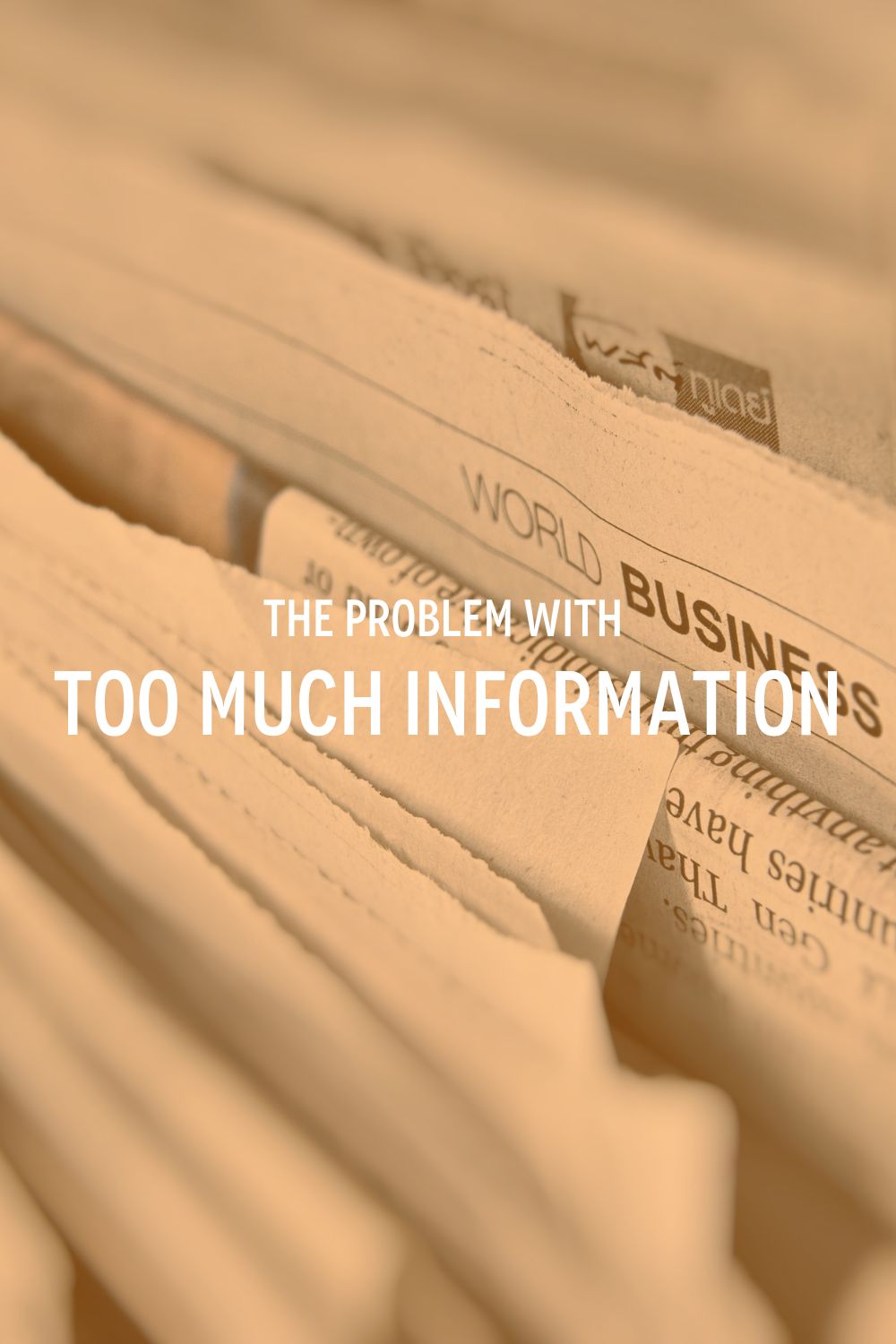
Information is everywhere. Louis Freeh once said that,
“Collecting intelligence information is like drinking water out of a fire hydrant.”
While you’re not likely collecting intelligence information, that’s what information overload is like: drinking water from a fire hydrant. Much of it will spill out and be missed. The same can be said about information overload.
Feeling Too Much Stress: One of the main symptoms of information overload is to feel stress. Some people say it feels like their brain is being so bombarded by information that as information goes in one side itís coming out the other. This causes people to forget things, which makes the stress build.
Lack of Confidence: When there is so much contrary information available, itís hard for people to choose the right course of action. For example, there are numerous reports that spanking is both bad for kids and good for kids. How do you know what information is right and what is wrong, and how do you proceed? The lack of confidence can cause people to not make any choices or feel bad about the choices they make.
Improper Information Filtering: When too much information is transmitted, the person receiving it often shuts off in a way. Normally the filtering process categorizes information as important or not important, but when there is too much there is often improper filtering called twigging. This essentially means that everything is general and all information is the same.
Not Knowing What’s Right or Wrong: When there is so much information with seemingly factual studies supporting them, it’s hard to know what’s right or wrong. For example, is a Paleo diet better or a vegan diet better for humans for weight loss and health? Which studies are right? Is there any way to know?
Feeling Confused about Common Knowledge: When you don’t know what information is real, what’s right and wrong, and you can’t see the trees for the forest, it leads to confusion about things that people generally know to be true about the world.
Increasing the Fear of Change: When you can’t determine what the information you receive means, it can cause you to fear change because you don’t know if that change is good or bad. Since information overload leads to black and white thinking, this can increase the fear of change that most people have naturally.
Taking on Too Much Too Fast: Sometimes information overload can make people feel as if they can multitask everything and do more than they can. But the truth is, as shown in study after study, humans aren’t designed for multitasking. If you don’t believe it, have a read of this Forbes article about multitasking.
You can work toward controlling information overload. Limit your exposure to screens and try to focus on what you’re doing at the time you’re doing it. Avoid multitasking whenever you can if it’s important to absorb the information properly.






